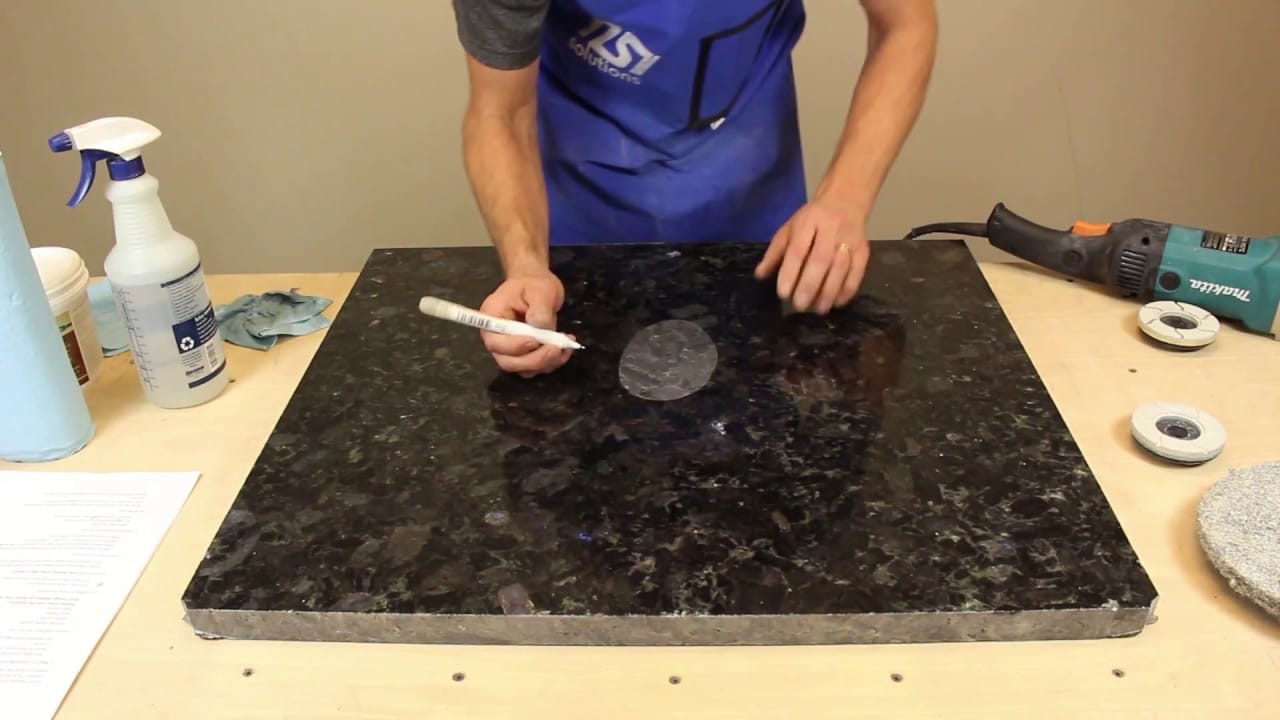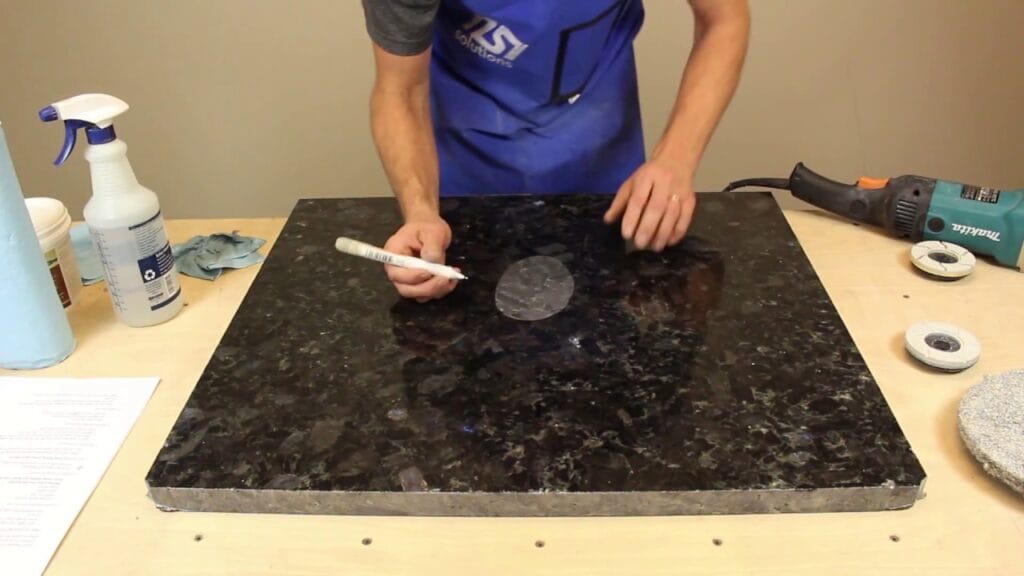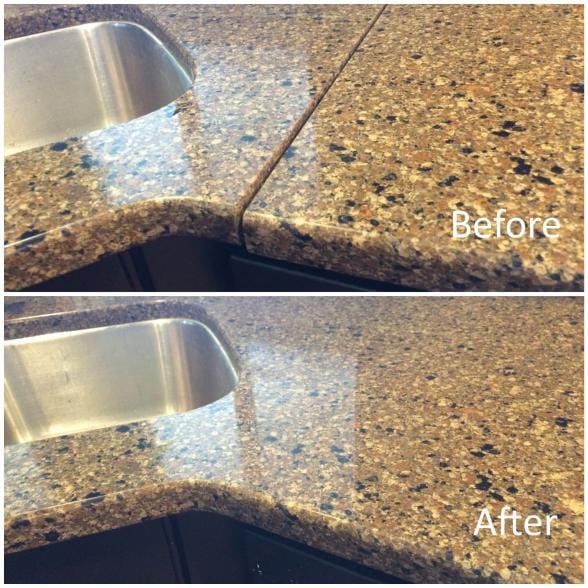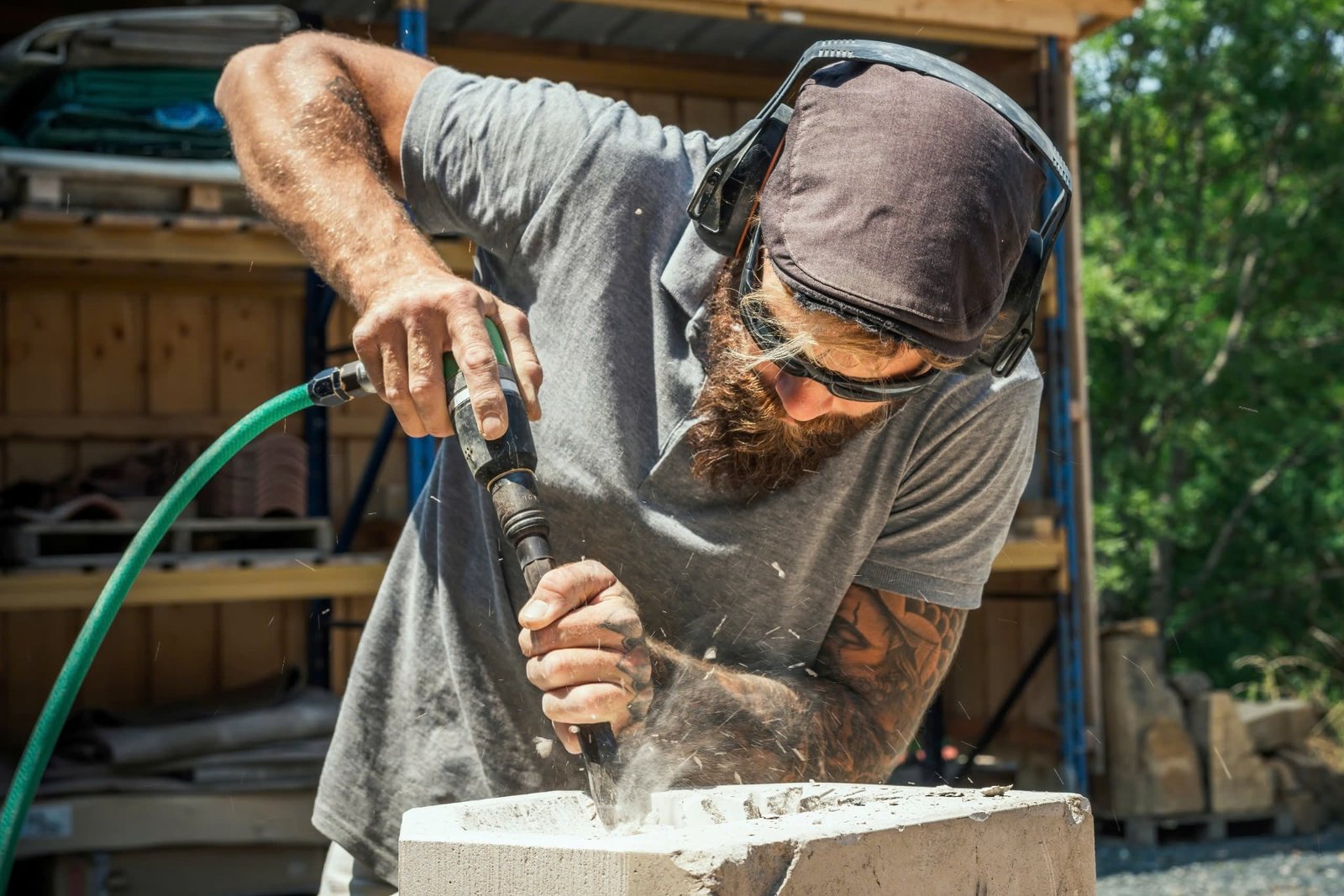
Granite countertops are known for their durability, aesthetic appeal, and luxurious feel, making them a top choice for both granite kitchen countertops and granite bathroom countertops
Granite countertops are known for their durability, aesthetic appeal, and luxurious feel, making them a top choice for both granite kitchen countertops and granite bathroom countertops. But like any natural surface, they can occasionally suffer damage — especially scratches — from everyday use.
Whether you have black granite countertops, white granite countertops, or textured honed granite countertops, minor scratches can be an eyesore. The good news? Most scratches on granite slabs for countertops can be fixed easily with the right tools and techniques. This guide shows you how to identify, treat, and prevent granite surface scratches—bringing back the shine and elegance to your countertops.

What Causes Scratches on Granite Countertops?
Granite is one of the hardest natural stones, but it’s not invincible. Here are some common causes of surface scratches:
- Cutting directly on the countertop without a board
- Sliding heavy kitchenware or appliances
- Dropping sharp or abrasive items
- Improper cleaning methods or harsh scrubbers
Although custom granite countertops are designed for longevity, surface scratches can still appear over time, especially in high-use zones like granite countertops with white cabinets or outdoor prep areas.
Tools and Supplies You’ll Need
To fix scratches on granite countertops, you’ll need the following:
- Granite-safe polishing compound
- Soft cloths or microfiber towels
- Fine steel wool (grade 0000)
- Granite repair kit or epoxy resin (for deeper scratches)
- Masking tape (optional)
- Polishing pads (buffing wheel optional)
Before we begin, check out this helpful summary about granite to understand your countertop’s composition.

Step-by-Step: How to Remove Minor Scratches from Granite Countertops
Step 1: Clean the Affected Area
Start by thoroughly cleaning the area to remove dirt and grime. Use a pH-balanced granite cleaner or a mix of mild dish soap and warm water.
- Avoid using vinegar or citrus-based cleaners as they can dull the surface.
- Dry the area completely with a soft cloth before proceeding.
🔗 Curious about granite’s geology? Learn more: What Type of Rock Is Granite?
Step 2: Inspect the Scratch
Determine whether the scratch is:
- Surface level (light scratch) – can be treated with polishing.
- Deeper (gouge or nick) – may require filling with resin or epoxy.
Use your fingernail to feel the scratch. If it catches, it’s deeper than the surface polish.
Step 3: Apply Polishing Compound for Surface Scratches
Polishing works well for polished granite countertops and lightly scratched blue pearl granite countertops or brown granite countertops.
- Use a granite polishing compound and apply a small amount over the scratch.
- Rub in a circular motion using a microfiber cloth.
- Continue polishing for several minutes until the scratch fades.
Optional: Use a low-speed buffing tool for faster and more consistent results.
Step 4: Treat Deeper Scratches with Epoxy or Resin
If your granite bathroom countertops or kitchen surfaces have visible gouges:
- Clean the area again with acetone to ensure adhesion.
- Apply color-matched epoxy resin (available in granite repair kits) to the scratch.
- Use a razor blade or applicator to smooth and level the resin.
- Allow the resin to cure fully (as per product instructions).
- Polish the area again to restore shine.
Tip: For textured finishes like leathered granite, consider reading How to Hone Leathered Granite Countertops for after-care tips.
How to Maintain Scratch-Free Granite Surfaces
Even the best granite countertops for kitchens require periodic care. Here’s how to keep them pristine:
Use Cutting Boards
Always use boards to protect your affordable granite countertops for modern kitchens.
Clean with the Right Products
Avoid harsh or abrasive cleaners. For proper cleaning technique, refer to How to Treat Granite Countertops.
Seal Your Countertops Regularly
A high-quality sealant can reduce the risk of stains and scratches. Reapply every 1–2 years depending on use.
Avoid Dragging Objects
Lift, don’t slide — especially for heavy appliances, cast iron cookware, or mixers.
Professional Repair vs. DIY
For light wear and tear, DIY scratch removal is often sufficient. But for major damage, consult:
- Top-rated granite countertop installers near me
- Granite countertop installation services
- Local granite fabricators
- Granite countertop showroom [location]
These experts can restore granite countertops in [city name] to a showroom finish using industrial tools.
Granite vs Quartz Countertops: Which Is Easier to Repair?
While natural stone countertops like granite require polishing or sealing, quartz countertops are non-porous and often more resistant to scratches. However, repairing quartz is more difficult and costly.
Explore comparisons:
Transporting Granite Countertops Without Damage
Before installation or repairs, ensure granite is moved safely. Use gear like ratchet tie down straps to avoid chips and cracks during transit.
Final Thoughts: Fixing Granite Scratches is Easier Than You Think
Granite countertops are an investment in style and durability. Scratches, while frustrating, are rarely permanent. With the right tools and a bit of elbow grease, you can restore your natural stone countertops to their former glory — whether they’re used indoors or as granite countertops for outdoor kitchens.
From white granite countertops paired with sleek cabinetry to granite countertops near me available through wholesale granite countertops suppliers, regular care and quick repairs can extend your surface’s beauty for decades.

